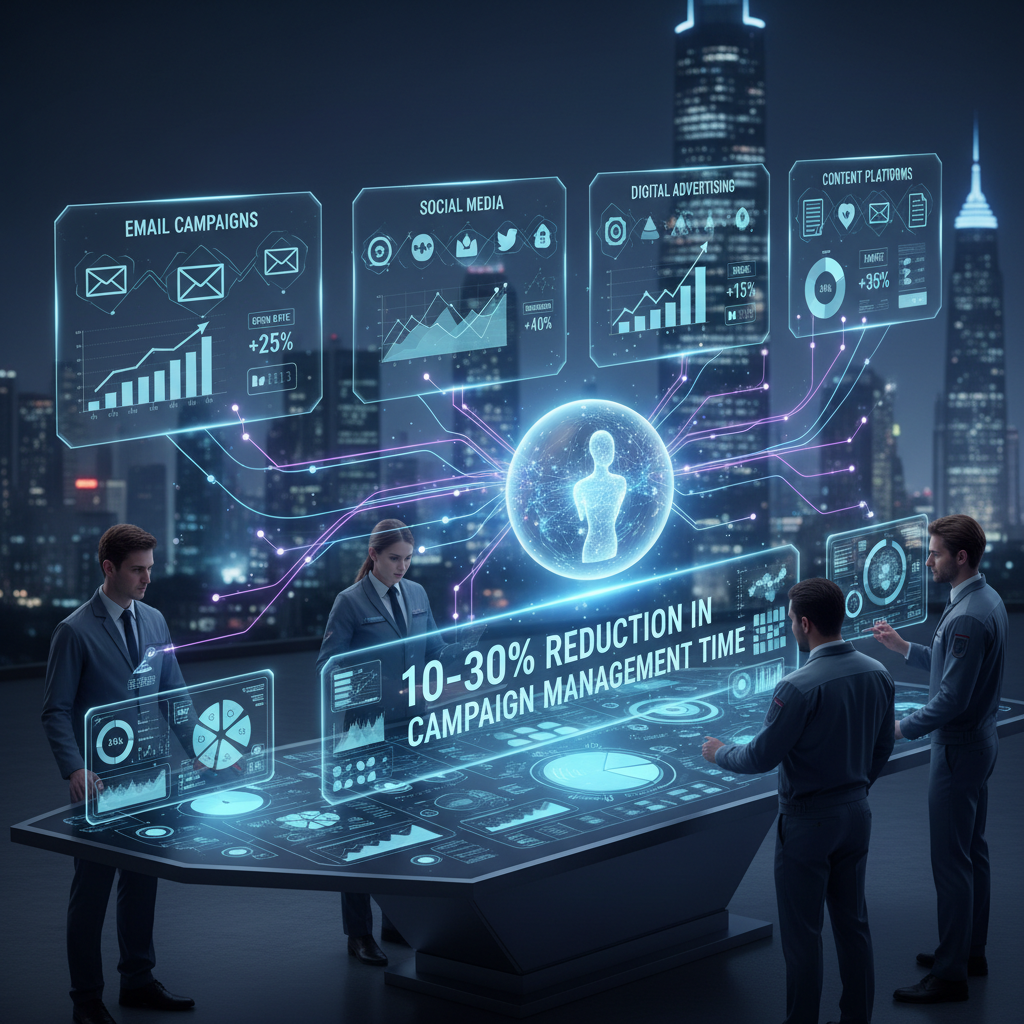
Frameworks, core principles and top case studies for SaaS pricing, learnt and refined over 28+ years of SaaS-monetization experience.
Thank you! Your submission has been received!
Oops! Something went wrong while submitting the form.
Join companies like Zoom, DocuSign, and Twilio using our systematic pricing approach to increase revenue by 12-40% year-over-year.

In today's hyper-competitive digital landscape, marketing teams are under constant pressure to deliver personalized campaigns at scale while maximizing ROI. Traditional marketing automation platforms have helped streamline workflows, but they often require significant human oversight and struggle with true personalization. Enter agentic AI - an evolution in marketing technology that promises to revolutionize campaign management through autonomous decision-making capabilities.
Agentic AI refers to artificial intelligence systems that can operate autonomously to achieve specific goals, make decisions, and take actions with minimal human intervention. Unlike traditional marketing AI tools that primarily analyze data or execute predefined tasks, agentic AI can proactively manage campaigns, learn from results, and continually optimize performance.
According to Gartner's recent technology forecast, by 2025, over 60% of enterprise marketing organizations will implement some form of agentic AI to automate campaign management processes. This shift represents a fundamental change in how marketing teams operate and engage with their audiences.
Marketing automation has evolved through several distinct phases:
McKinsey research indicates that companies implementing intelligent marketing automation systems see an average 10-30% reduction in campaign management time and up to 20% improvement in conversion rates compared to traditional automation platforms.
Traditional segmentation requires marketers to define audience parameters manually. Agentic AI continuously analyzes customer data to identify meaningful segments that humans might miss.
Case Study: Fashion retailer Stitch Fix leverages intelligent marketing systems to analyze over 100 dimensions of customer preferences, creating micro-segments that would be impossible to manage manually. This approach has contributed to their 86% annual growth in active clients since implementation.
Rather than relying on pre-created content variations, agentic marketing systems can:
Research from Salesforce indicates that 80% of consumers are more likely to purchase when brands offer personalized experiences, yet only 34% of marketers have the resources to create truly personalized content at scale without AI assistance.
The most sophisticated benefit of agentic AI lies in its ability to orchestrate multi-channel campaigns autonomously by:
According to Adobe's Digital Trends Report, companies using AI-driven campaign orchestration report a 41% higher conversion rate than those using traditional automation tools.
Despite its promise, implementing agentic AI for marketing automation presents several challenges:
Agentic AI requires comprehensive, clean data to function effectively. Organizations should:
With greater personalization comes increased responsibility. Marketing teams must:
A common misconception is that agentic AI will replace marketing teams. Instead, it requires new skillsets and workflows:
For organizations looking to implement intelligent campaign management, consider this phased approach:
As personalization engines become more sophisticated, we're moving toward truly predictive marketing systems that can anticipate customer needs before they're explicitly expressed. The most forward-thinking marketing organizations are already experimenting with:
The most successful implementations of agentic AI for marketing automation strike a balance between technological capability and human creativity. While AI excels at data analysis, pattern recognition, and execution at scale, human marketers remain essential for strategy, brand voice, emotional intelligence, and ethical oversight.
Organizations that view agentic AI as an enhancement to their marketing team rather than a replacement will be best positioned to leverage this technology for competitive advantage. The future of marketing isn't about AI taking over—it's about creating a symbiotic relationship between human creativity and machine intelligence to deliver more relevant, timely, and valuable experiences to customers.
By embracing intelligent campaign management powered by agentic AI, marketing teams can focus on high-level strategy and creative development while their AI colleagues handle the complex orchestration required to execute personalized experiences at scale.

Join companies like Zoom, DocuSign, and Twilio using our systematic pricing approach to increase revenue by 12-40% year-over-year.